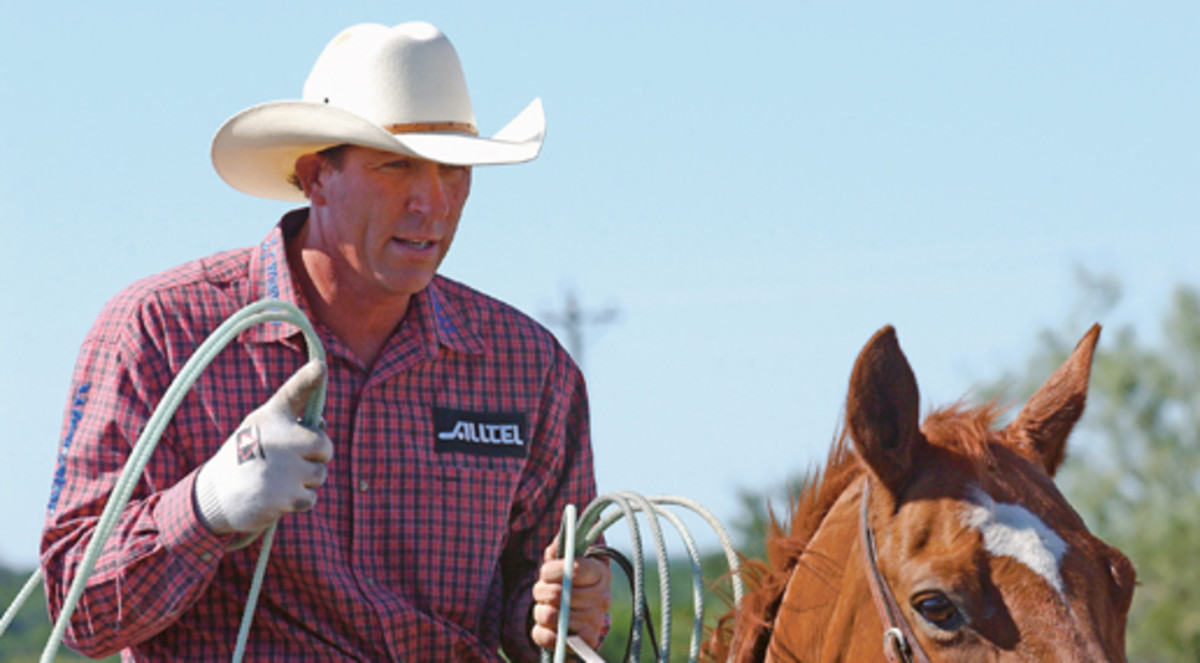If it seems like I spend a lot of time on the subject of scoring, it’s because I find it so crucial to the success of any roper, including myself. It’s a make-or-break element of the game, plain and simple, and whether I win or lose depends so much on how my horse and I are scoring cattle. I can’t have a horse cheat me and leave when he wants to, because I can’t have my horse dictating the start I’m going to take. When I’m in the box and a horse gets tight because he’s nervous, he’ll often turn his head one way or another. If he does that, I’ll ride him forward. I’ll do that until he relaxes with his head straight. Then I’ll score a steer and reward him for it. I try to avoid fighting with my horse in the box, so he doesn’t dread being in there.

If a horse jumps forward when you score a steer, you don’t want to jerk on him or you’ll pull him up in the front end, especially if you have a heavy bridle on him. You have to show your horse that you aren’t going to go overboard in scolding him if he makes a mistake. Don’t jerk on him. Let him know he did something wrong, then reward him when he does it right and relaxes. Don’t multiply your problems in the box with too much punishment.

There are several different cues a horse needs to go on when he’s scoring. If a horse is scoring perfectly, when you nod your head you’ll have some pressure on the reins. You want the tension on the reins snug, with your left hand low. You don’t want to be at the end of loose reins with your hand up in the air.

When your horse hears the gate open, he’s going to react to that sound. You’re going to react as you nod with slight pressure on the reins. Don’t get in the habit of taking a strong hold on your horse or you’ll pick his front end off the ground and you’ll be late.

As I’m making practice runs, I still apply these same principles when I have a heeler, but I score a lot of steers between runs. When I score a steer, I’ll ask my heeler to move with the steer so my horse doesn’t move off that visual cue of him taking off. I don’t want my horse watching that other horse and taking off when he does.












